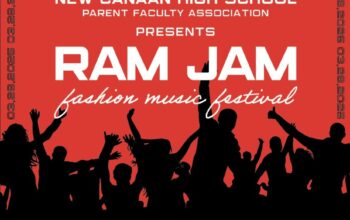
Lily Kazemi
News Editor
Today, September 28, NCHS recognizes Banned Websites Awareness Day by blocking the three primary social-networking sites: Twitter, Facebook and YouTube. From 7:30 to 2:05, students will not be able to access the sites on any computer throughout the school.
Library Department Chair Michelle Luhtala, who organized the national awareness day with the help of the American Association of School Librarians (ALA) and contributed to an article on the subject for USA Today, said that the idea was partly inspired by the celebration of Banned Books Week. “There’s a long-standing tradition of Banned Books Week at the end of September, where you talk about all the books that have been banned from libraries or pulled off the shelves and censored,” she said. “It occured to me that the biggest sensorship problem we are facing is in school, so I started a conversation with the American Association of School Librarians, and they designated Sept. 22 as Banned Websites Awareness Day. I went to Mr. Luizzi and he suggested, since we don’t ban the common websites as it is, to ban some of them.”
The original concept had been to include popular school-wide websites such as Google Apps and Google Docs in the ban, but reactions from teachers encouraged Ms. Luhtala to change it up. “Originally we were going to block Google Apps and Google Docs [in additon to Facebook, YouTube, and Twitter]but there was such pushback of that from the teachers,” she said. “I was really excited that teachers were like, ‘Are you kidding me? You’re going to block Google Docs?” I didn’t know it was such a well-entrenched site at the school. This is exactly the kind of reaction that I wanted to occur because of the day.”
Teachers aren’t the only ones who depend on the use of these applications to do work: Students were irritated at the idea of not having access to Google Docs, as well. “I need Google Apps for a history project I’m doing,” senior Grace Bettridge said. “I’d really be in trouble if we didn’t have it because I need it for my research.”
Junior Sam Murray agreed, emphasizing how important Facebook in particular is to his ability to manage his school work. “I think that these websites are an intrical part of my academic life, and I use them in order to communicate with other students about homework assignments and for preparation for tests and quizes,” he said. “It really takes away from the academic experience, even though I don’t really use them that much at school.”
Sophomore Maureen Schott said that she wasn’t upset over the idea that there would be no access: in fact, it might even help her concentrate in school. “I use Facebook frequently. Like, every free period,” she said. “But I think these sites distract me and then I get invested in them and if we can’t use it, I’ll probably be able to get my work done.”
Ms. Luhtala said that the high percentages in the statistics of banned sites might shock many students, especially those who take our access to them for granted. “Mrs. Swan and I have been talking about this at conferences for a long time and we surveyed teachers and found out that in high schools 87% block Facebook, 63% YouTube, 49% block Hotmail and Yahoo!, 27% Google Docs, and 23% Google itself,” she said. “We couldn’t believe it – I cannot imagine coming to work and being able to function in this enviornment. How do you teach? How do you learn?”
Sam was completely astounded by these statistics, and couldn’t believe that so many schools would block access to sites that could potentially make the lives of the students so much more easy: “The statistic for facebook is believable, and I would understand why schools would want to minimize access to social media in order to minimize distractions and maximize the productivity of students,” he said. “However, I’m astonished that so many schools block access to Google and Google Docs, which are an important part of research, collaboration, and the overall educational experience!”
Watch below for a video, put together by Ms. Luhtala, indicating student and teacher reactions to the day:



